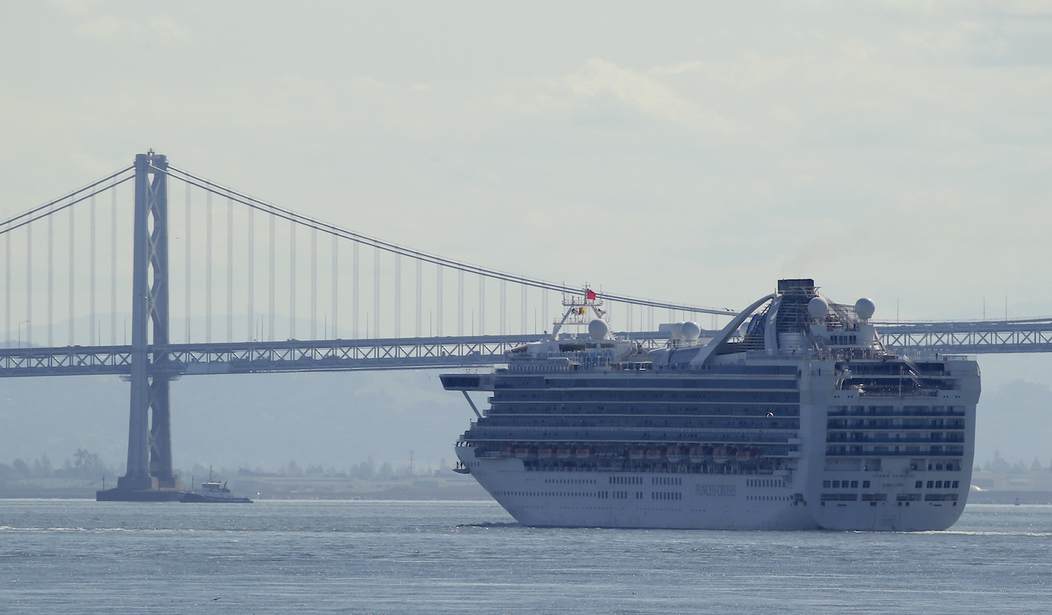The Omicron variant is causing all kinds of problems for the travel industry. The latest warning coming from the CDC on Thursday is that everyone should avoid cruise travel regardless of vaccination status. This warning comes after an increase in COVID-19 cases on cruise lines in recent days due to Omicron.
We’ve read reporting of cruise ships being turned away from their destinations due to the amount of COVID-19 infected passengers on board. Just a few days ago, the Carnival Freedom was denied entry to Bonaire and Aruba due to passengers and crew infected with the virus. All passengers were required to be vaccinated and tested before leaving on the cruise. On December 23, 21 crew members on the Koningsdam cruise ship operated by Holland America tested positive for COVID-19 when the ship arrived in Puerto Vallarta. Mexican authorities turned the ship away. The ship had already made stops in Cabo San Lucas and Mazatlan before arriving in Puerto Vallarta. The staff is fully vaccinated.
Holland America, Carnival, Royal Caribbean and Regent Seven Seas have all reported COVID outbreaks on cruises. At least four cruise ships were turned away from ports of call or stopped from letting passengers disembark in the Americas last week due to COVID-19 cases on board. Other ships have reported outbreaks since cruising re-started last summer after being shut down for over a year due to the pandemic. In recent days, the rate of cruises forced to alter their itineraries appears to have ticked up. It has affected a small fraction of operating cruise ships and positive COVID tests aren’t unique to travel this month. Passengers who test positive during a cruise generally are required to isolate themselves in their cabins. U.S.- based cruises require masks be worn in indoor public areas. Recently that policy was updated to include fully vaccinated passengers being required to mask up indoors.
Even though it is a small percentage of ships’ passengers being infected, the CDC raised cruise travel to Level 4 from Level 3 on Thursday. It points to an increase in cases since the identification of the Omicron variant.
Since the identification of the Omicron variant, there has been an increase in the number of COVID-19 cases among cruise passengers and crew reported to CDC. Additionally, there has been an increase in the number of cruise ships meeting the COVID-19 case threshold for CDC investigation (i.e., Yellow status on the Cruise Ship Color Status webpage).
CDC has temporarily extended the CSO through January 15, 2022, with minor modifications. The CSO, as modified, applies to foreign-flagged cruise ships operating or seeking to operate in U.S. waters. U.S.-flagged cruise ships previously covered by the CSO may continue to participate voluntarily. Passenger operations have now resumed on cruise ships. As modified, the CSO aligns with current public health considerations and other factors onboard cruise ships. Information about the COVID-19 status of ships sailing under the CSO is available on CDC’s website.
As of July 23, 2021, the CSO and accompanying measures, such as technical instructions, are nonbinding recommendations for cruise ships arriving in, located within, or departing from a port in Florida. CDC is continuing to operate the CSO as a voluntary program for such ships that choose to follow the CSO measures voluntarily in Florida.
The CDC isn’t technically shutting down cruise travel but it is warning passengers to stay away. Besides the usual recommendations of getting vaccinated and boosted and wearing masks, hand washing, and social distancing, the CDC also recommends that passengers purchase travel insurance.
Get fully vaccinated against COVID-19 and get a COVID-19 vaccine booster dose, if eligible.
Get tested with a COVID-19 viral test 1–3 days before your departure, even if you are fully vaccinated.
If you test positive, isolate and do NOT travel.
Get travel insurance. Make sure you have a plan to get care overseas, in case you need it. Consider buying additional insurance that covers health care and emergency evacuation, especially if you will be traveling to remote areas.
This newest guidance puts travelers in a tough spot. Do they go ahead and avoid losing money and use their tickets? Do they cancel and hope to rebook a cruise in the future? People know the risks when they cruise. Under the best of circumstances, there is a risk of people getting sick, with or without a pandemic. Many of us think of cruise ships as floating Petri dishes anyway. But as far as the Omicron variant goes, for those who are vaccinated and boosted, the symptoms are mild and don’t require hospitalizations unless there are underlying complications. For older cruisers, it will be up to their own risk assessment. The virus is here to stay, just like other contagious viruses. So far, cruise ships operating in U.S. waters reported about 5,000 Covid cases to the CDC between Dec. 15 – 29. In the first two weeks of December, a total of 162 cases were reported so you can see how quickly the cases have spiked.
The cruise industry was particularly hard hit during the first year of the pandemic. It was the last to resume after pandemic lockdowns eased. This is the latest blow as the industry jerks from starts to stops in service. The stock market saw some reaction with Royal Caribbean Cruises, Norwegian Cruise Line, and Carnival all falling on the news.








Join the conversation as a VIP Member